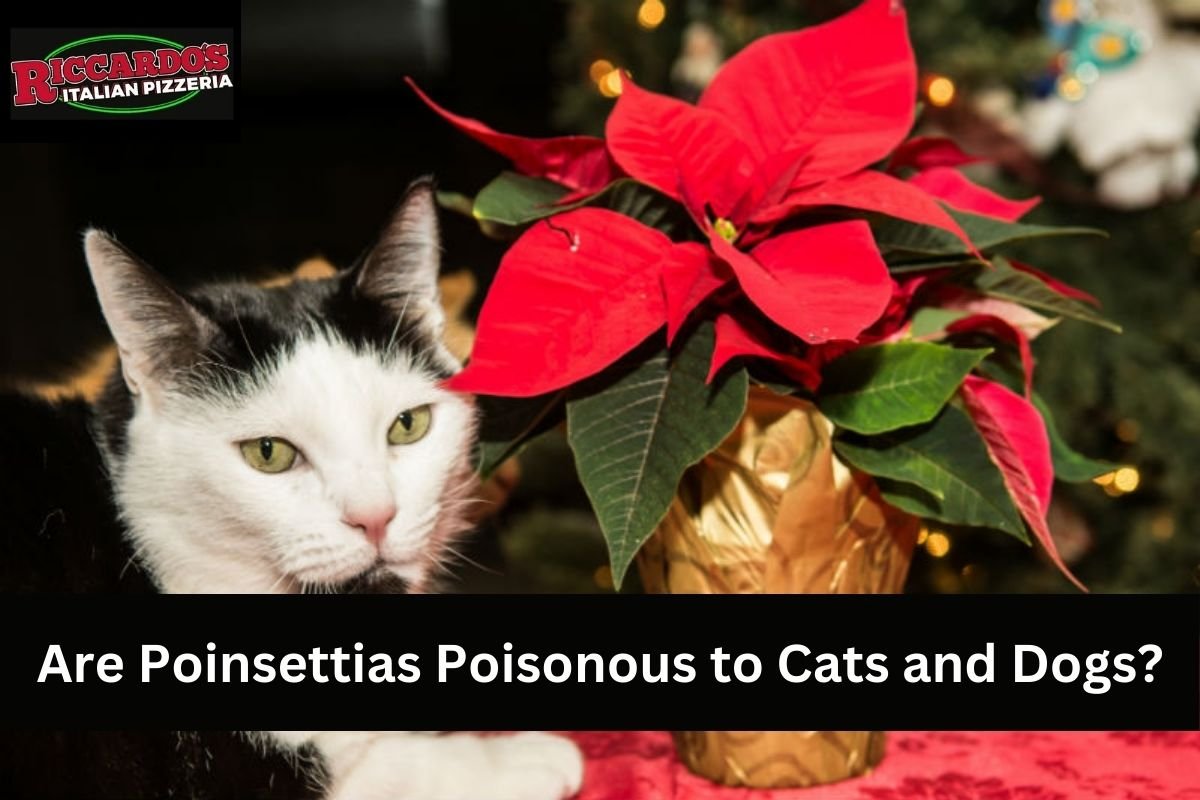Are Poinsettias Poisonous to Cats and Dogs? :- Due to their vivid red and green foliage, poinsettias are well-liked holiday plants. However, pet owners are frequently concerned that these festive plants may be toxic to their feline companions. This article investigates whether poinsettias are toxic to canines and felines, analyses the symptoms of exposure, and provides guidance on what to do in the event that your companion consumes any component of the plant.
Are Poinsettias Poisonous to Cats and Dogs?
Poinsettias are popular holiday plants considering their vibrant red and green foliage. Nevertheless, feline companions’ toxicity into these festive plants is a common concern among pet owners. This article examines the potential toxicity of poinsettias to canines and felines, assesses the symptoms associated with exposure, and offers recommendations for handling situations in which a companion consumes any poinsettia component.
Also Read :- Do Hummingbirds Like Sunflowers?
There is a Poinsettia’s toxicity.
There is a common perception that poinsettias, also known as Euphorbia pulcherrima, are poisonous; however, this perception is slightly overstated. The American Society for the Prevention of Cruelty to Animals (ASPCA) and other credible authorities state that poinsettias are only mildly poisonous to cats and dogs. Poinsettias are a popular holiday decoration. The plant has a sap that is milky white in colour and has the potential to irritate the skin, but it is not lethal.
Diterpenoid euphorbol esters and detergents that are similar to saponin are the substances that are most likely to cause irritation when it comes to poinsettias. When consumed by pets, these drugs might cause mild to moderate gastrointestinal distress; nevertheless, they are not normally considered to be life-threatening.
Possibilities of Poinsettia Ingestion Symptoms:
The symptoms that a cat or dog experiences after ingesting poinsettia might vary depending on the amount of poinsettia that was taken as well as the sensitivity of the particular pet. The following are examples of common symptoms:
It is possible for pets to develop mild gastrointestinal distress if they consume pieces of the poinsettia plant. Dogs and cats may experience drooling, vomiting, or diarrhoea. In most cases, these symptoms are modest and will go away on their own.
Irritation of the Mouth and Oesophagus The sap of the poinsettia has the potential to irritate both the mouth and the windpipe. It’s possible that when they’re eating, pets will paw at their mouths, slobber excessively, or show other signs of discomfort.
If you come into contact with the sap of the poinsettia, you may get irritation on your skin, including redness, swelling, and itching. Dogs are more likely to have this occurrence since they may chew on the plant and then end up touching other portions of their body.
Therapy and Preventative Measures:
In the majority of instances, the treatment for poinsettia consumption is basic and consists of providing care for symptoms. Steps to take in the event that your pet consumes poinsettias are as follows: Eliminate Access to: You should make sure that your pet is unable to access the plant any longer in order to prevent any future consumption.
Make water available to your pet and encourage them to drink it. It is possible that this will assist ease gastrointestinal discomfort and dilute the plant material that has been consumed. Attend to the Symptoms: Watch your pet carefully for any indications that they are in a great deal of distress. After a few hours, mild symptoms typically disappear on their own without the need for medical intervention.
It is imperative that you get in touch with a veterinarian if the symptoms continue or become worse. Even though they are uncommon, severe responses may necessitate the assistance of a trained medical professional, who may administer anti-nausea drugs or fluids to prevent dehydration.
Alternatives That Are Less Dangerous:
Consider selecting plants that are safe for your pets to have in your home, particularly during the Christmas season, in order to avoid any potential problems. Included among the options is the Christmas Cactus, often known as the Schlumbergera, which is non-toxic and produces lovely flowers over the holiday season.
Rosemary, also known as Salvia rosmarinus, is a fragrant herb that is well-suited for use in cooking and is not harmful to animals. The Chlorophytum comosum, that is the Spider Plant: A houseplant that is not only non-toxic but also robust and safe for both cats and dogs to utilise.
